Featured
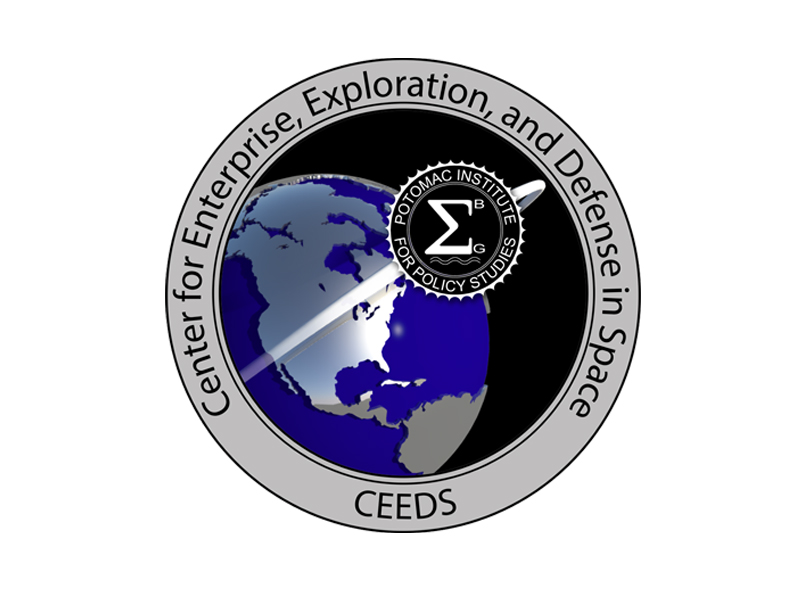
Center for Enterprise, Exploration, and Defense in Space (CEEDS)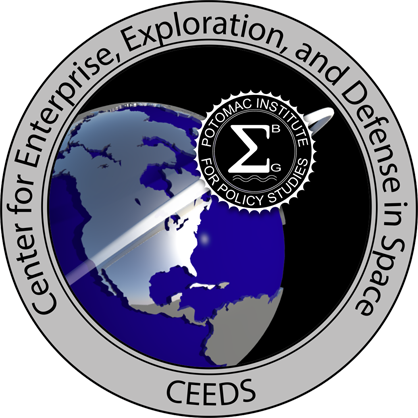
The Future of Deep Space Exploration
Wednesday, October 16th, 2019
Time: 2:00pm-3:30pm
Location: 2325 Rayburn House Office Building
Washington DC, 20515
Opening Remarks
Dr. Jennifer Buss, President, Potomac Institute for Policy Studies
Moderator
Sonya Gavankar, Director of Public Relations, Newseum
Panelists
Steve Clarke, Deputy Associate Administrator, Science Mission Directorate, NASA
Mary Lynn Dittmar, President and CEO, Coalition for Deep Space Exploration
Ryan Whitley, Director of Civil Space Policy, National Space Council, The White House
Lon Levin, President and CEO, GEOshare
 The Potomac Institute for Policy Studies cordially invites you to attend a panel discussion on the exciting work being done in the exploration of deep space. The Institute’s Center for Enterprise, Exploration, and Defense in Space (CEEDS) has called together a group of experts from across relevant government organizations and private industry to discuss what is being done today – and what more can be done tomorrow – to explore the cosmos.
The Potomac Institute for Policy Studies cordially invites you to attend a panel discussion on the exciting work being done in the exploration of deep space. The Institute’s Center for Enterprise, Exploration, and Defense in Space (CEEDS) has called together a group of experts from across relevant government organizations and private industry to discuss what is being done today – and what more can be done tomorrow – to explore the cosmos.
For decades, the US has led the charge in space exploration. American astronauts were the first to land on the moon. NASA’s Pioneer, Galileo, Voyager, NEAR, and Cassini-Huygens missions continued to forge ahead: first to fly by Saturn, Uranus, and Neptune; first to orbit Jupiter and Saturn; first to land on an asteroid and first to land on Titan. These are but a few of the achievements of American deep space exploration over the last five decades. So what efforts are continuing today, and what does the future look like?
The panelists will discuss the current plans of their organizations, how they envision the future of deep space exploration, what new problems will that future face, what benefits this will continue to provide for the American public, and how policymakers can support these efforts.
Attendees are encouraged to join us in person.
RSVP is required. Please send your name and affiliation to Luke Koslosky at This email address is being protected from spambots. You need JavaScript enabled to view it..
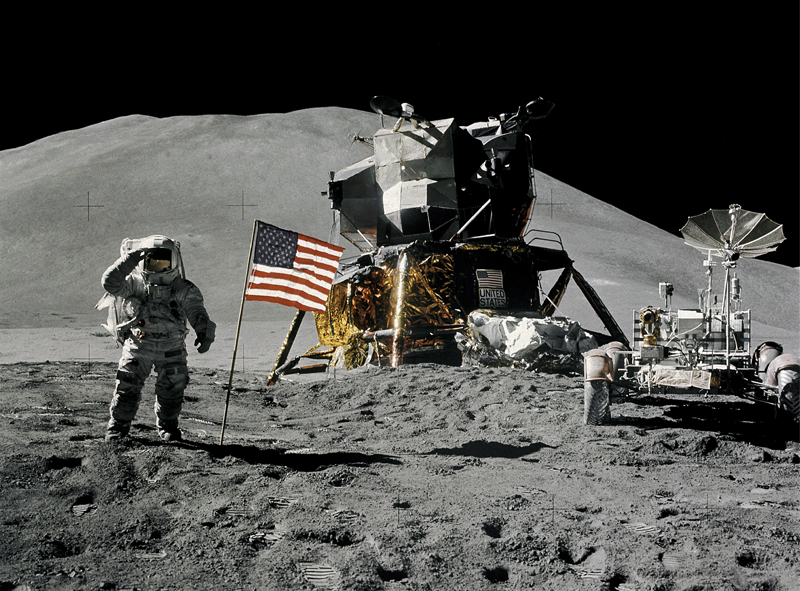
The Potomac Institute Calls for a Coordinated National Space Strategy on the 50th Anniversary of Apollo 11
Our nation’s reliance on space has reached unprecedented levels, and the federal government must have a unified strategy commensurate with its importance.
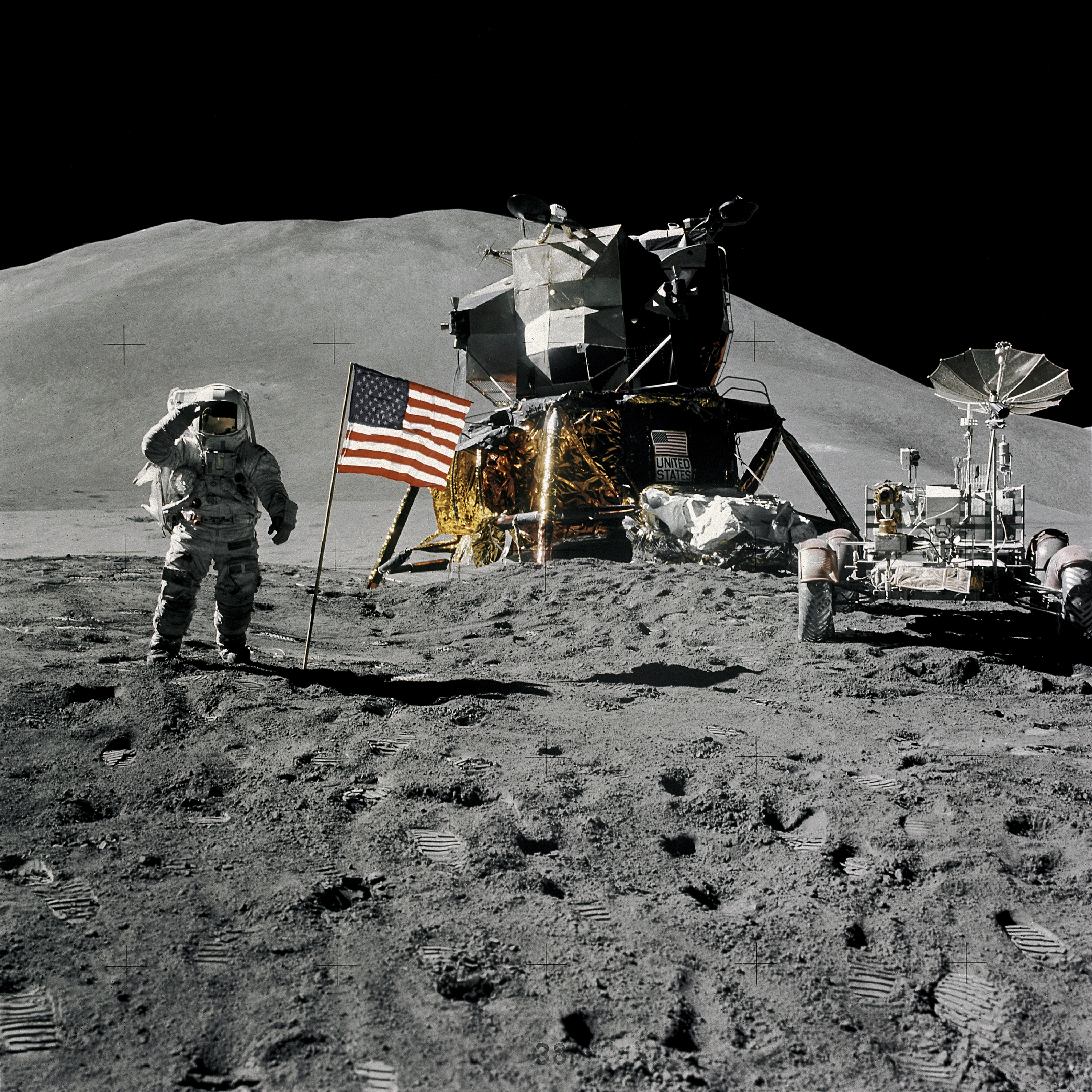 Since the launch of Sputnik in 1957, the impact of space-based infrastructure has increased year after year. Today, more than ever before, the benefits brought from orbit pervade every level of society: GPS enables over $1 billion of economic activity per day, NOAA satellites collect weather data to warn of upcoming storms and track long term climate data, communications satellites provide worldwide, irreplaceable coverage for both civilian and military operations, and much more. These industries touch on nearly every department, agency, and office of the federal government and impact each American every day.
Since the launch of Sputnik in 1957, the impact of space-based infrastructure has increased year after year. Today, more than ever before, the benefits brought from orbit pervade every level of society: GPS enables over $1 billion of economic activity per day, NOAA satellites collect weather data to warn of upcoming storms and track long term climate data, communications satellites provide worldwide, irreplaceable coverage for both civilian and military operations, and much more. These industries touch on nearly every department, agency, and office of the federal government and impact each American every day.
Despite the crucial role that space plays in every facet of government and commercial operations, the federal government does not have a coordinated National Space Policy. The last policy, issued in 2011 by the Obama Administration, is outdated, and does not sufficiently address all key policy areas. The current administration has taken steps towards a national strategy by outlining several key features that should be included in a national policy, issuing four space policy directives, and reconstituting the National Space Council. Individual agencies have their own stated policies: NASA issued a strategy last year that outlined its plan for the next four years; the Department of Commerce outlined the general goal of promoting commercial space activities in its departmental strategic plan, the Department of Defense and Office of the Director of National Intelligence have enumerated space policy within their own national security plans; and the Department of Transportation has its own National Space Transportation Policy from 2013 and has received further policy direction from Space Policy Directive-2. While these entities have policy strategies for space, there remains no overarching national strategy to tie them together.
The development of a comprehensive, cohesive national strategy is critical and should include key stakeholders from every sector of the national space enterprise. A new National Space Strategy will mitigate the problem of duplicative program efforts, create accountability by designating specific space issues to certain offices, agencies, or departments, and create a coordinated vision throughout the enterprise. Furthermore, development of national strategy can be used as an opportunity to identify key policy issues that remain unresolved and provide clarifying language on each, including which governmental parties are responsible for the various issues and how they are to interface with other parties of interest.
A new National Space Strategy must work toward identifying the large-scale challenges of tomorrow and assign ownership of them today. This will include, but is not limited to: governance of military installations, scientific outposts, and colony settlements; ownership rights of mined resources and the accompanying extraction installations; defense of growing infrastructure in space and corresponding intelligence gathering capabilities; nuclear or solar power for space architectures; the tracking, collection, and repurposing of space debris; regulation of ever-increasing commercial activities both on orbit and for related ground infrastructure; and increasing long-term human presence in space and the necessary biomedical research needed to do so.
The creation of an overarching National Space Policy will allow the United States Government to coordinate the ongoing efforts in space today, while preparing for the continued complexity of tomorrow. Given the critical nature of our dependence on space, it is imperative to create a comprehensive strategy now to guide this future and make way for the many policies that will be required.
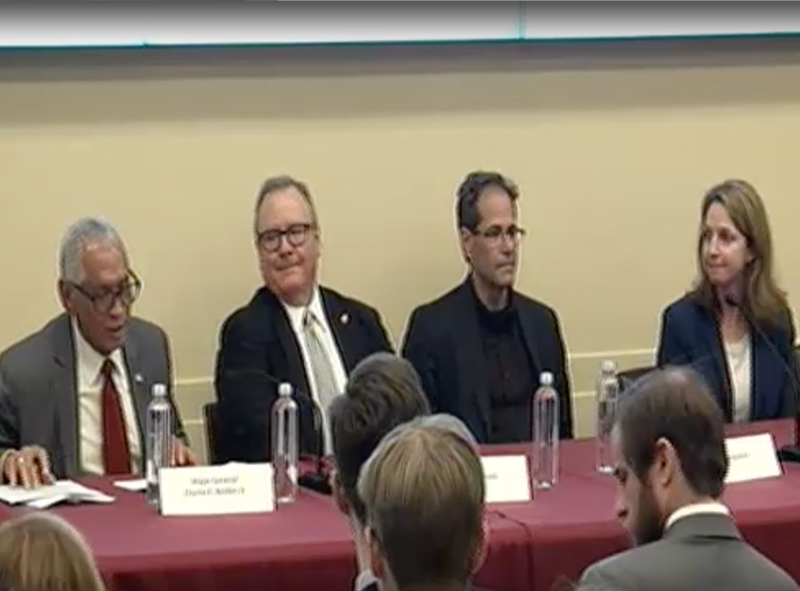
The Potomac Institute for Policy Studies' Center for Enterprise, Exploration, and Defense in Space (CEEDS) held a seminar titled "The Next Space Industry: Low Earth Orbit Commercialization" on June 21, 2019. To kick off the event Michael Beavin provided brief comments about the benefits of working with commercial and international partners and how the economy can enable sustained exploration from LEO, to the moon, and then Mars – like bricks used to build a cathedral. Following his remarks, there was a panel discussion exploring topics such as regulations and barriers for the commercialization of LEO, private-public partnerships, the ISS, launch providers, orbital debris, profitability of space activity, ensuring continuity of interest and support, national security concerns, and envisioning the future of research in LEO in 10-15 years.
Panelists for this event included Doug Comstock (Commercial LEO Liaison, HEOMD, NASA), Michael Beavin (Director of Commercial Space Policy, National Space Council, The White House), Jeffrey Manber (CEO, NanoRacks), and Kerry Timmons (LEO Commercialization Program Management Lead, Lockheed Martin Space Systems Group). Dr. Jennifer Buss (President, Potomac Institute for Policy Studies) made opening remarks and the panel was moderated by MajGen Charles F. Bolden Jr. (a former NASA Administrator and member of the Board of Regents, Potomac Institute for Policy Studies).
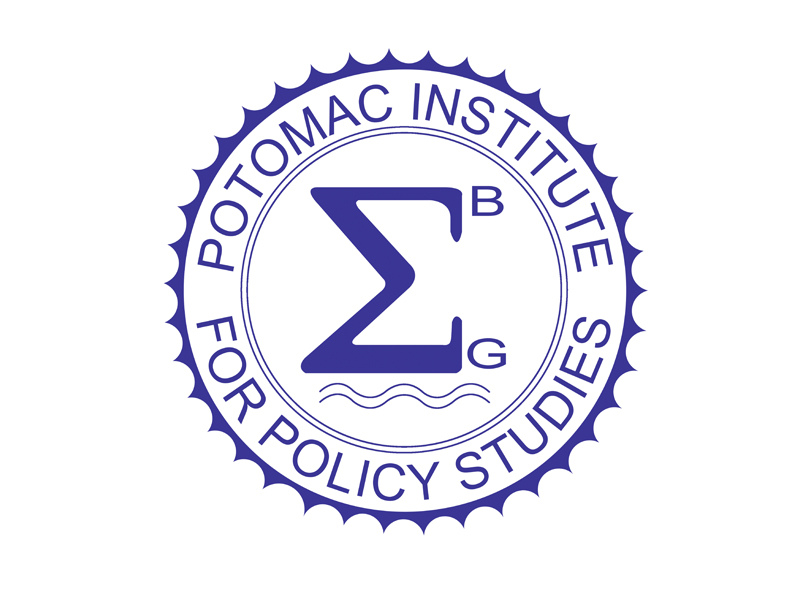
Potomac Institute Now Hiring
The Potomac Institute for Policy Studies is currently inviting applications from mid-to-senior career professionals from diverse backgrounds including academia, industry, military, and government. Ideal candidates will have a technical background, preferably Ph.D., and government or military experience.
Candidates must be capable of technical assessment and analysis and be able to communicate well with government customers and non-technical audiences. Selected candidates will be responsible for managing multiple projects at once, including budgets and personnel. This position will require deep thinking about the impacts of emerging sciences and technologies and the ability to provide policy recommendations based on thoughtful analysis. Candidates must feel comfortable thinking outside the box and making bold policy recommendations.
Who should apply?
Candidates should be mid-to-senior career professionals. A technical background in the sciences, engineering, mathematics, or other relevant areas with program management and government experience is preferred. Candidates must have excellent interpersonal skills, be able to communicate effectively in meetings, presentations and written material, meet deadlines, and be able to work unsupervised. This is a full-time, paid position. All candidates must be US citizens, and eligible for a security clearance. Candidates must be willing to relocate to the Washington D.C. area.
Application Process
Please submit a cover letter and résumé using the online portal at https://potomacinstitute.bamboohr.com/jobs/ or emailing documents directly to Kathryn Ziden at kziden(at)potomacinstitute.org.
A final selection will be made based on personal interviews with the selection committee.
About Potomac Institute
The Potomac Institute for Policy Studies is an independent, non-partisan, not-for-profit, science and technology policy think tank and research institute. The Institute identifies and aggressively shepherds discussion on key science, technology, and national security issues facing our society, providing in particular, an academic forum for the study of related policy issues. From these discussions and forums, we develop meaningful policy options and ensure their implementation at the intersection of business and government. The Potomac Institute offices are located in the Ballston area of Arlington, Virginia.
Job Type: Full-time

Center for Enterprise, Exploration, and Defense in Space (CEEDS)
The Next Space Industry: Low Earth Orbit Commercialization
Friday June 21st, 2019
Time: 2:00pm-4:00pm
Location: 2325 Rayburn House Office Building
Washington DC, 20515
Moderator
Former NASA Administrator MajGen Charles F. Bolden Jr.
Panelists
Michael Beavin, Director of Commercial Space Policy, National Space Council, The White House
Doug Comstock, Commercial LEO Liaison, HEOMD, NASA
Jeffrey Manber, CEO, NanoRacks
Kerry Timmons, LEO Commercialization Program Management Lead, Lockheed Martin Space Systems Group
 The Potomac Institute for Policy Studies cordially invites you to attend a panel discussion on the commercialization of Low Earth Orbit, moderated by former NASA Administrator MajGen Charles F. Bolden Jr.
The Potomac Institute for Policy Studies cordially invites you to attend a panel discussion on the commercialization of Low Earth Orbit, moderated by former NASA Administrator MajGen Charles F. Bolden Jr.
As NASA continues to work towards a future in which it is one of many customers in a vibrant space economy, it is critical to understand both the markets that will drive that transition, and the role that government can play to enable it.
For almost two decades, the International Space Station has provided unique access to research and development in a microgravity environment for the U.S. government, industry and researchers. This research demand will only continue to grow, as new opportunities are discovered and pursued.
The panel will explore what opportunities exist in this burgeoning environment and provide input on how the private and public sectors can work together to eliminate barriers to success, craft effective incentives for partnership, and coordinate resources to jumpstart a self-sustaining commercial marketplace in Low Earth Orbit.
Attendees are encouraged to join us in person.
RSVP is required. Please send your name and affiliation to Dr. Kate Ziden at This email address is being protected from spambots. You need JavaScript enabled to view it..
